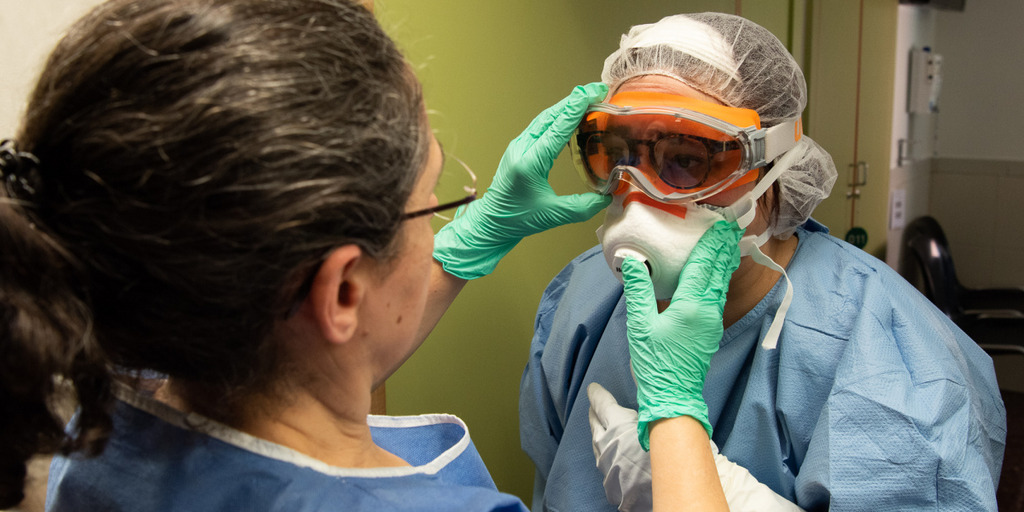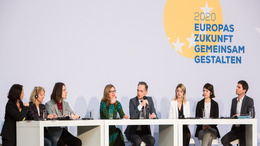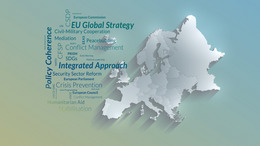Through the Eastern Partnership (EP), the EU is investing in its political, economic and social ties to the neighboring countries of Belarus, Ukraine, Moldova, Georgia, Armenia and Azerbaijan. Brussels is supporting their transformation towards democracy, rule of law and free market economies – based on European values. It is only fitting that the EU should help these countries in light of the corona pandemic and the effect it is having on politics, business and society at large.
At a time when the world’s economically strongest nation, the United States, is struggling to overcome the pandemic, and Germany’s chancellor has concluded that the outbreak is confronting the EU with its "greatest test since its founding," the countries beyond the EU’s border in Eastern Europe are particularly vulnerable.
After all, they all have inadequate health-care systems, unreliable administrative capacities and limited budgetary leeway to cope with the losses that social distancing is imposing on their economies.
Neither the EU nor its neighbors can afford “neighborhood distancing”
Showing solidarity here is not only essential for good neighborliness and cohesion, it is also farsighted – since only healthy nations can create a stable “ring of friends” around the EU.
To that end, on March 30 Brussels mobilized an emergency support package totaling €840 million to fight the virus and its short and medium-term effects in the EP countries. By that time, however, China and Russia had already begun sending highly visible aid packages, including medical and personal protection gear.
Meanwhile, citizens of EP countries watched stunned as EU member states proved incapable of cooperating effectively amongst themselves – above all, they witnessed the way individual EU members dealt with freedom of movement, one of the most symbolic achievements of European integration. Since the members of the Schengen Area agreed to close the EU’s external borders for the time being and thus end visa-free entry for citizens of Georgia, Moldova and Ukraine, the Eastern Partnership’s most visible benefit has been put on ice.
Autocrats in the EU neighborhood are driving the narrative
It is already clear that the corona pandemic is endangering democracy, even within the EU, where Hungary and Poland have restricted democratic principles. And in the EU neighborhood, the narrative that autocracies are supposedly better prepared for managing crises is finding a receptive audience among those who feel the need for a “strong” leader.
Presidents such as Alexander Lukashenko in Belarus and Ilham Aliyev in Azerbaijan have decided either to play down the crisis (similar to the nuclear catastrophe in Chernobyl in 1986) or take the opportunity to suppress the opposition once again. And in countries with variously defective democracies, such as Armenia, Georgia, Moldova and Ukraine, the supposedly successful crisis management in China and the emergency aid provided by Russia are, for some, welcome expressions of soft power. Fake news from Russia is spreading even faster than the virus and in some cases is just as dangerous.
One thing in particular is being communicated to Eastern Europeans from Brussels: The EU is preoccupied with itself. This is a heavy blow for the Commission, which entered the stage as a “geopolitical Commission” meant to create a “stronger Europe in the world.”


![[Translate to English:] Teilnehmer des Stakeholder-Dialogs während der Diskussion](/fileadmin/files/_processed_/1/a/csm_2582989313_be_d2dd9305ee.jpg)




